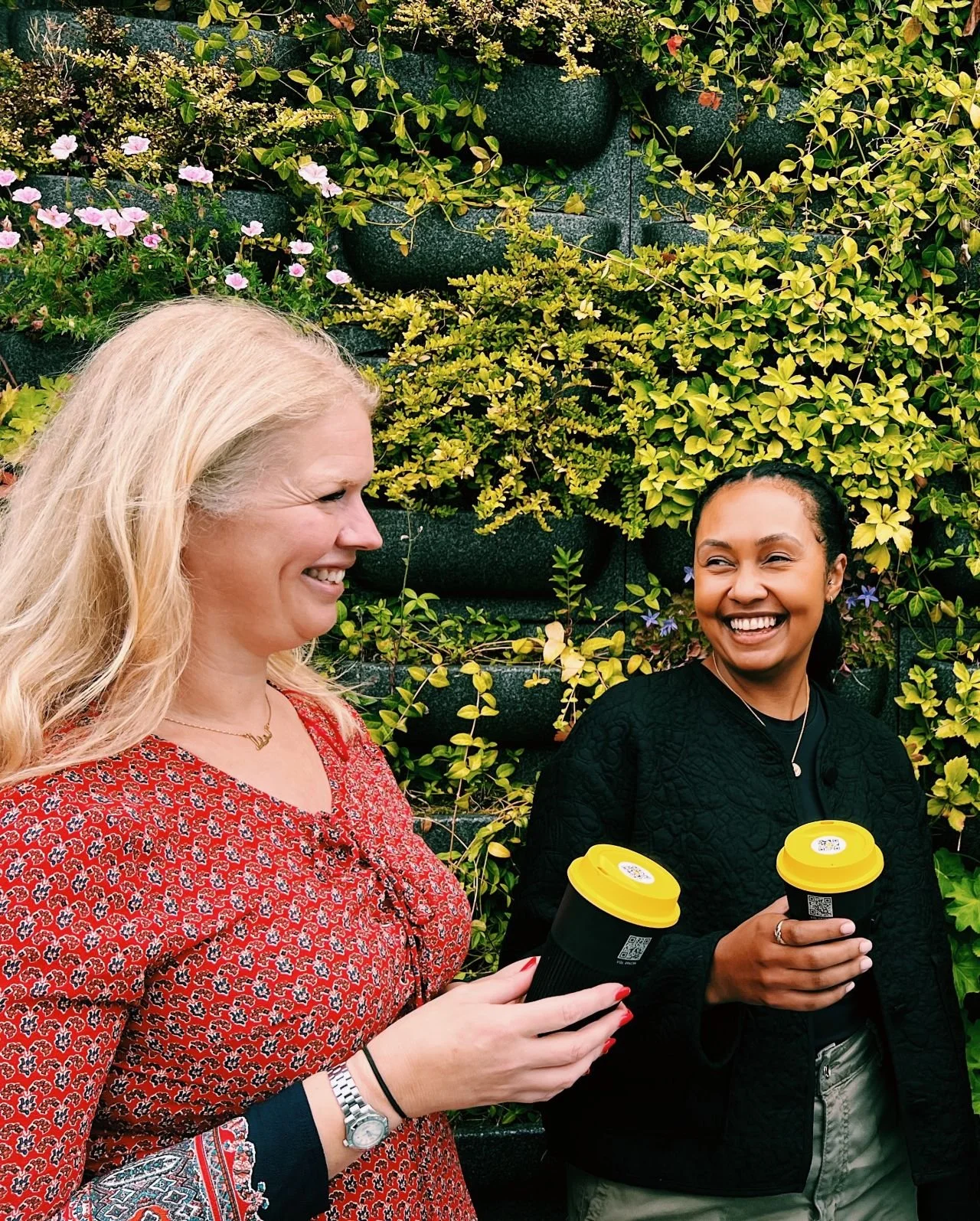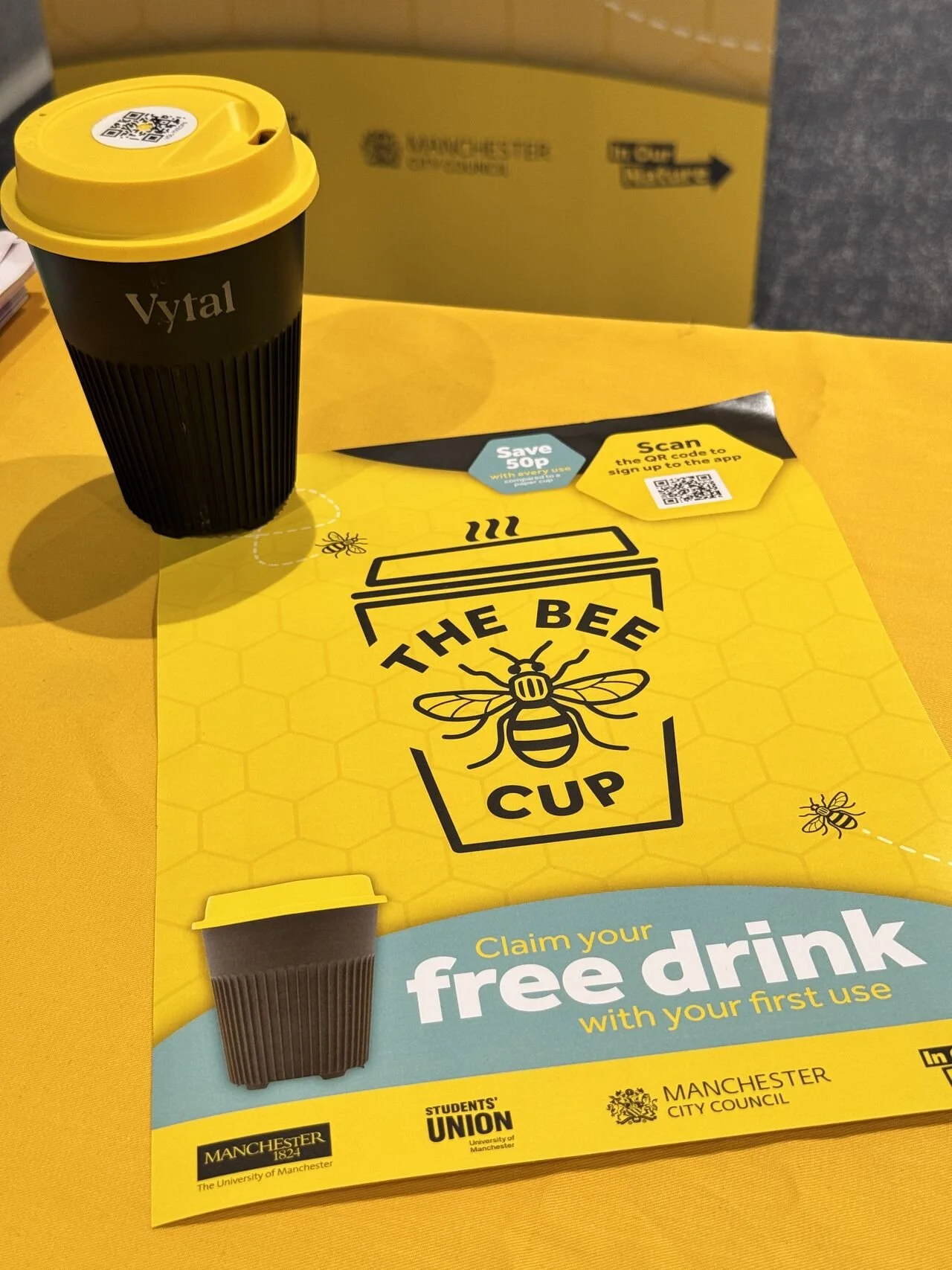Case Study: Trialling a returnable cup scheme in cafés along Oxford Road
This summer In Our Nature teamed up with The University of Manchester to pilot a returnable cup scheme, here’s what we learnt along the way.
Vytal’s returnable cup scheme allows customers to borrow a reusable cup for free from participating vendors, to return within 14 days. An idea that The University of Manchester wanted to trial with cafés across their campus.
Manchester, meet the Bee Cup!
Let’s take a closer look at how the pilot went and what we learnt along the way...
As part of the Bee Cup pilot, we supported four independent cafés along Oxford Road to participate: Eighth Day Café, Benugo, Corridor Coffee Co. and the café at Royal Northern College of Music.
1,185 people made use of the scheme at these independent cafes, saving nearly 1.3 tonnes CO2e.
What did customers think?
To get a sense of how customers were finding the new scheme, we sat down and had a chat with some of them.
Of the 30 people we spoke to, here’s what we heard:
Around half were already aware of the scheme and using it. Sometimes their motivation for using the scheme was put down to saving money (where a discount was offered for using a Bee Cup), other times this was due to environmental concerns. Around half of people said that both factors were equally important to them.
These people who were using the scheme went on to tell us that…
Once set up, they found the Bee Cup scheme very easy and quick to use
Multiple, convenient locations are important
Reminders that the returnable cup scheme is available are appreciated
Some people also told us that they would prefer a café running the scheme to one that isn’t.
For those people that we spoke to who were’nt using the scheme:
Some simply preferred carrying their own reusable cups and bottles, using disposable cups or sitting in to have their drinks.
The rest didn’t know about or fully understand how the Bee Cup scheme worked but once they knew more, they were interested in trying it.
Implementing a returnable cup scheme – how the cafés got on
Of the four independent cafés that took part, Corridor Coffee Co. and Benugo were particularly successful at implementing the scheme.
“The returnable cup scheme has been really successful for us so far and we’ve definitely noticed that we’re buying less paper cups. To encourage our customers to use the scheme, we added the discounted returnable cup price to our menu and added a QR code to download the Vytal app to a display board for people to scan whilst queueing for their order. We’ve also trained our staff so they’re able to explain how to download the app.”
– Corridor Coffee Co.
“It made sense for us to join the scheme as so many other university cafés were taking part and it’s been a really positive experience for us, we’re going to continue offering returnable cups. We’ve also noticed that we’re using fewer plastic cups and we’re saving money on buying disposables.”
– Benugo
Where implementing the scheme proved more challenging to implement, this was largely put down to:
Limited space being available
The large amount of other information being displayed or shared with the customers during each transaction, making it difficult to add something else and/or
The nature of the business (i.e. why people came to the place and how much this was to do with purchasing hot drinks)
Good to know, what we've learnt about launching a returnable cup scheme
You’ll need basic washing facilities. To successfully implement the scheme, washing the cups will need to be factored into a cafe’s daily tasks. This doesn’t necessarily require a dishwasher; a sink will do just fine.
Think about bins. Make sure the cup return bin is somewhere prominent and that other waste receptacles are available to help ensure only the cups end up in the return bin (additional signage may also help).
Promotion is key. Consider prominently displaying information about your returnable cups including QR codes to download the app and make sure you factor in training time with your staff, so they know how to promote and support customers to make the most of the scheme.
Behaviour change takes time. But the results can be really worthwhile for your café, your customers and the planet!


